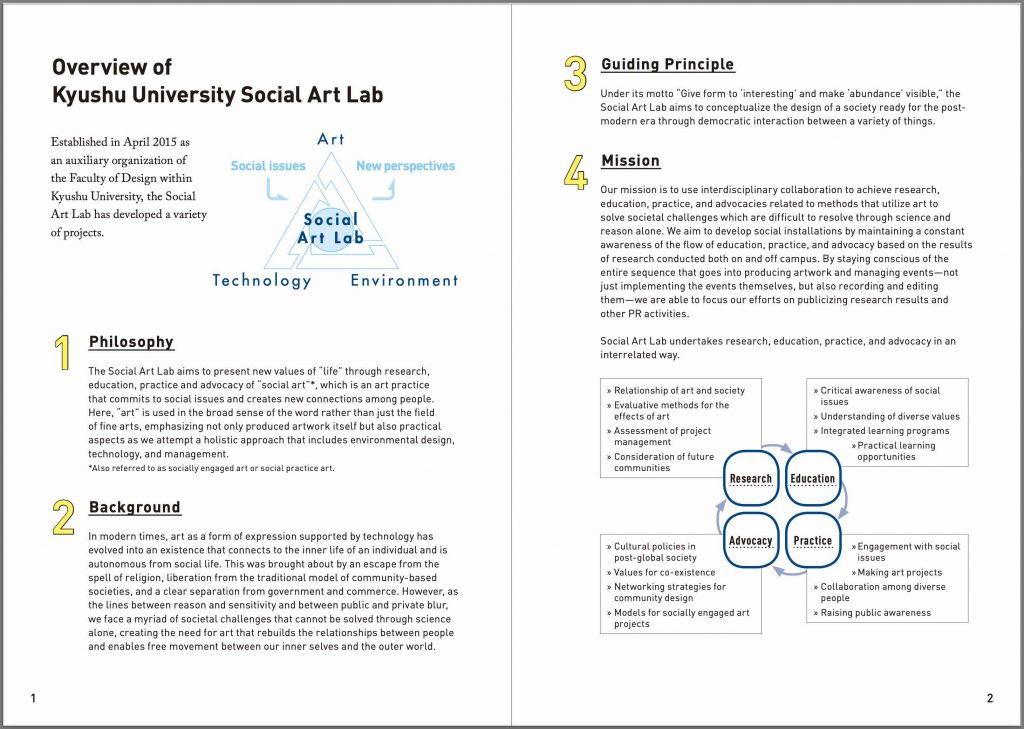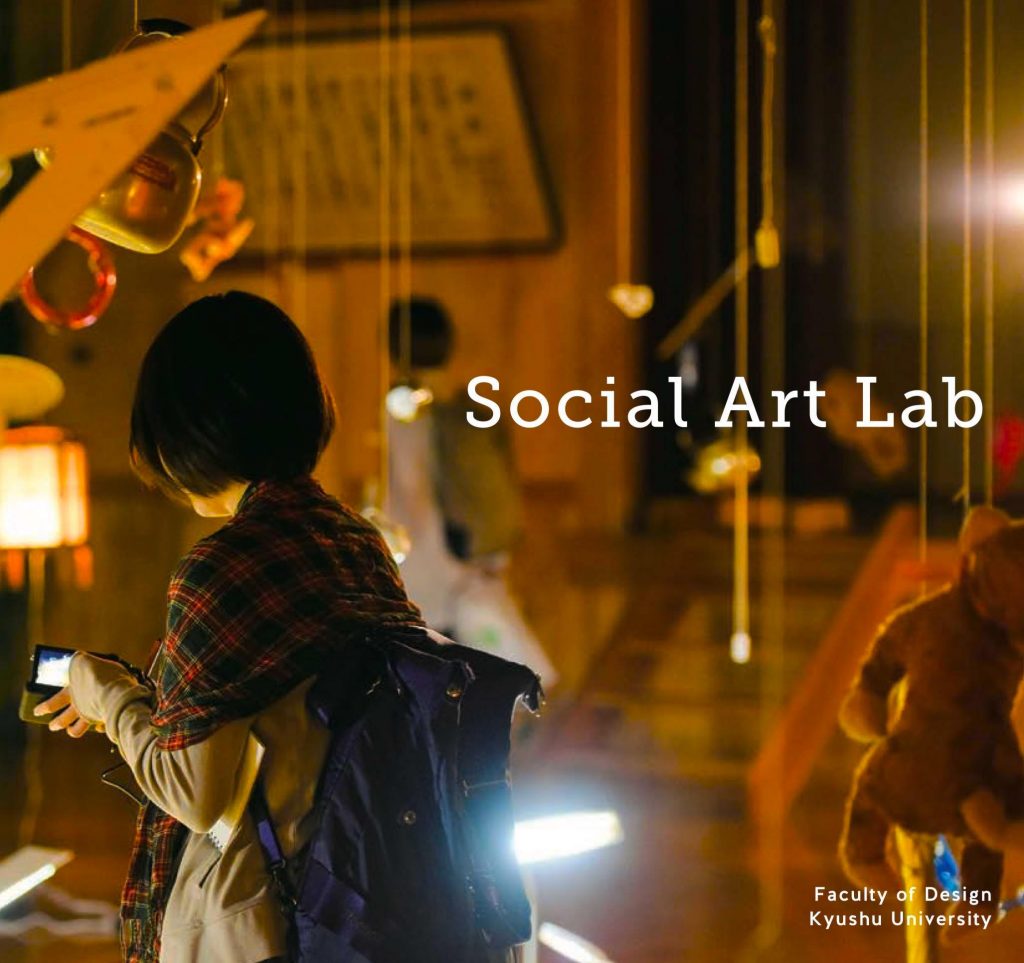publication
English Publications
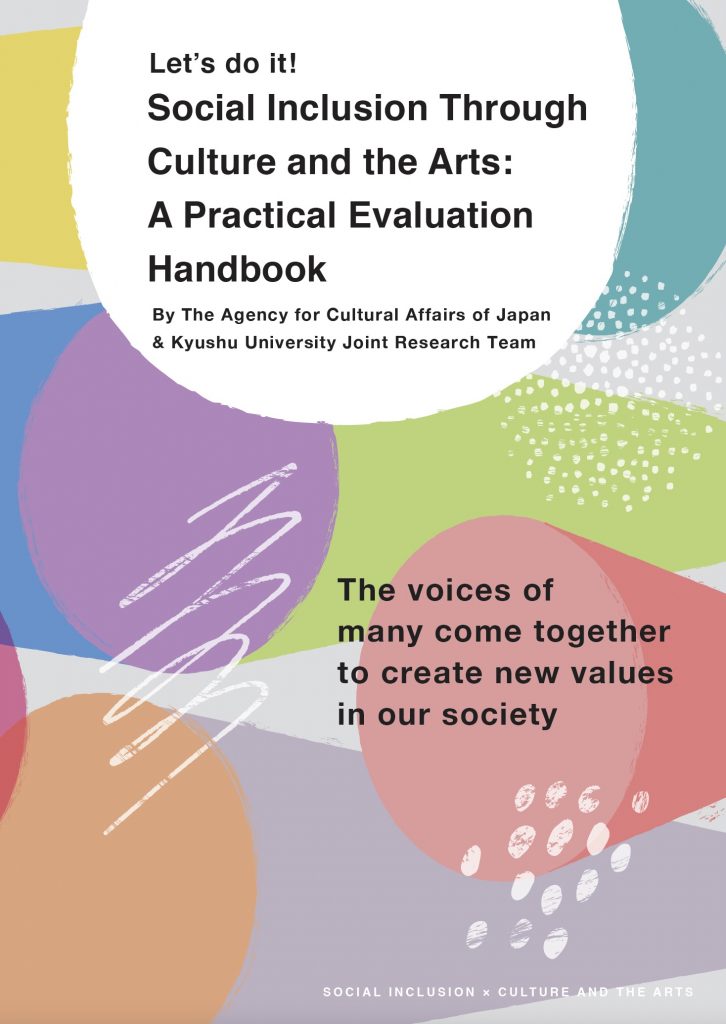
The Agency for Cultural Affairs & Kyushu University Joint Research Team (2020),
Let’s do it! Social Inclusion Through Culture and the Arts:A Practical Evaluation Handbook
Social Art Lab, affiliated with the Faculty of Design, Kyushu University, Japan
The extent to which we are able to take a flexible approach to the evaluation of cultural projects determines whether or not such evaluation will be meaningful. Standard evaluation practices follow a process of determining project goals and targets at the outset and then checking whether these have been achieved. They give the impression that if we simply follow the steps which have been set out, just like an easy recipe or a manual for assembling a piece of furniture, we will be able to do it well.
With cultural projects, however, even though long-term goals do not change, short-term targets may alter in the course of the project. Moreover, the initial setting of targets is often difficult for socially inclusive arts activities. Such cases require a process of flexible adjustment of project targets and of the subjects of evaluation as we carry out the project and its evaluation.
This handbook aims to shed some light on this flexible process. The opening worksheets may seem a little complicated compared with those in standard evaluation textbooks. However, they are based on the experiences of stakeholders who are making meaningful use of evaluation as they carry out cultural projects. Organizing these practices into the process outlined in this handbook took a great amount of time and effort. We hope that you will put it to good use, and if you have any suggestions for improvement, we would be grateful for your input.
This handbook is a sequel to “Social Inclusion Through Culture and the Arts: A Handbook for Beginners” and “Social Inclusion Through Culture and the Arts: A Handbook for Evaluation.” We hope you will refer to these as appropriate.
Mia Nakamura
Lead Researcher, the Agency for Cultural Affairs & Kyushu University Joint Research Team
Associate Professor, Faculty of Design at Kyushu University
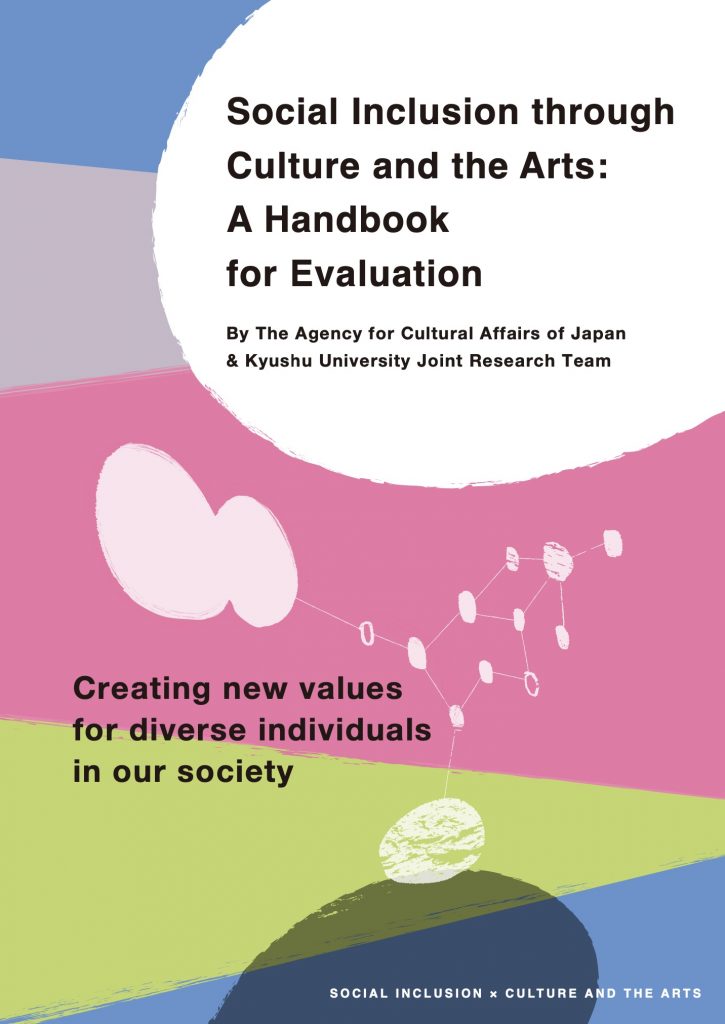
The Agency for Cultural Affairs & Kyushu University Joint Research Team (2020),
Social Inclusion Through Culture and the Arts:A Handbook for Evaluation
Social Art Lab, affiliated with the Faculty of Design, Kyushu University, Japan
When you hear the word “evaluation”, you might picture interview evaluations or personnel evaluations —a person in authority unilaterally making decisions regardless of the feelings and intentions of the person being evaluated. However, public grants, awards, and commissions should not be evaluated by specific individuals, but by the diverse group of citizens who make up the public. This handbook considers how in a democratic society, diverse citizens are the appreciators of public work and should therefore be the true evaluators of socially inclusive cultural projects.
In English, the word “evaluation” means “to find the value of”, and emphasis is placed on discovering the value of something. Evaluation should not only be done ex post facto to deter mine how effective an arts activity was, but to build a better future. It is important that objectives are clarified and that evaluations are carried out in an appropriate manner using standards that meet these objectives.
Put that way, evaluation may sound very difficult, but that is not the case. If you read this handbook, we think you will agree that evaluation is something you can do yourself.
Mia Nakamura
Lead Researcher, the Agency for Cultural Affairs & Kyushu University Joint Research Team
Associate Professor, Faculty of Design at Kyushu University
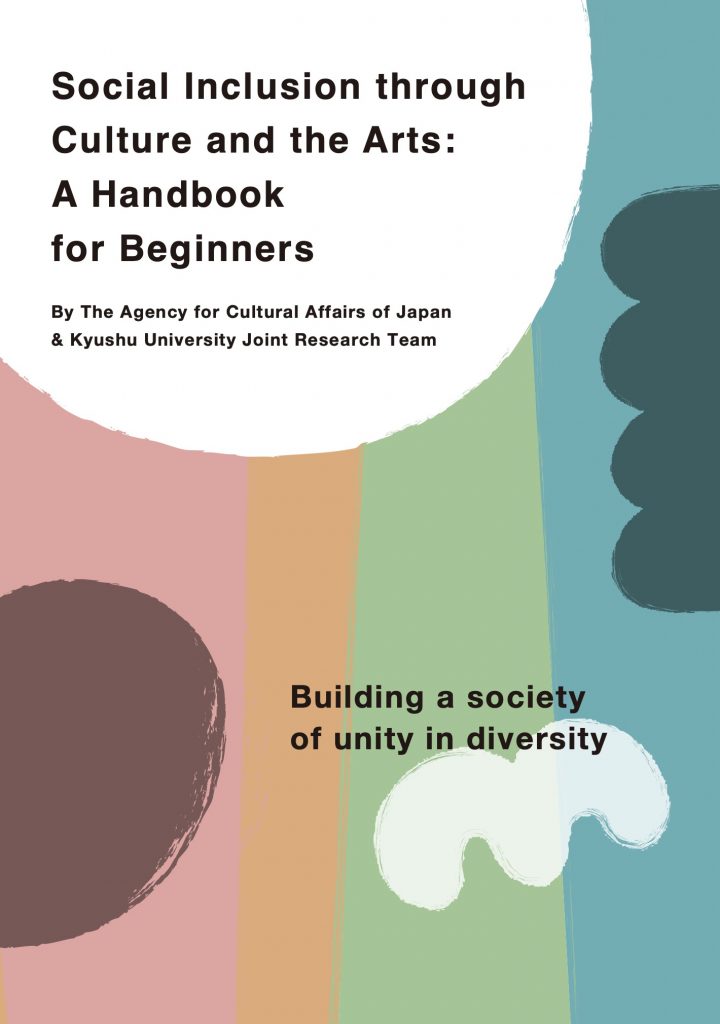
The Agency for Cultural Affairs & Kyushu University Joint Research Team (2020),
Social Inclusion Through Culture and the Arts:A Handbook for Beginners
Social Art Lab, affiliated with the Faculty of Design, Kyushu University, Japan
Coexistence with people different from ourselves has become an important, indeed unavoidable, social issue as we confront questions about the nature of sustainability in today’s global society.
In the area of culture, too, arts activities for those who have experienced social exclusion and isolation, whether due to disability, old age, poverty, withdrawal from society, or foreign nationality, are becoming widespread. The Agency for Cultural Affairs of Japan has been proactively supporting arts activities relating to social inclusion since the launch of the “Third Basic Policy on the Promotion of the Arts and Culture” in 2011. Furthermore, the “Act on the Promotion of Artistic and Cultural Activities by Persons with Disabilities” was promulgated and came into force in 2018.
What, though, are the arts that facilitate social inclusion? There are surely people who are wondering “How are these different from regular arts activities?” or “Why social inclusion in the cultural sphere? Doesn’t that come under welfare?” Some people may even ask “Does the government need to support culture?” or “Isn’t this just a fiscal burden?”
This handbook has been created to answer such questions. It has been written for prospective readers who are involved with cultural administration, arts organisations, or those who have an interest in arts and society. It is our particular hope that this handbook may serve as a useful reference to those intending to start activities in this field, and the content has been selected for this purpose.
This is, however, a handbook and not a manual. It lays out the basic approaches, but not models for taking action. This is because the best practice will differ according to each actual situation. We believe that the mission of this handbook is to encourage dialogue in this field.
We will be glad if it can contribute to policymaking and to project planning and management.
Mia Nakamura
Lead Researcher, the Agency for Cultural Affairs & Kyushu University Joint Research Team
Associate Professor, Faculty of Design at Kyushu University
